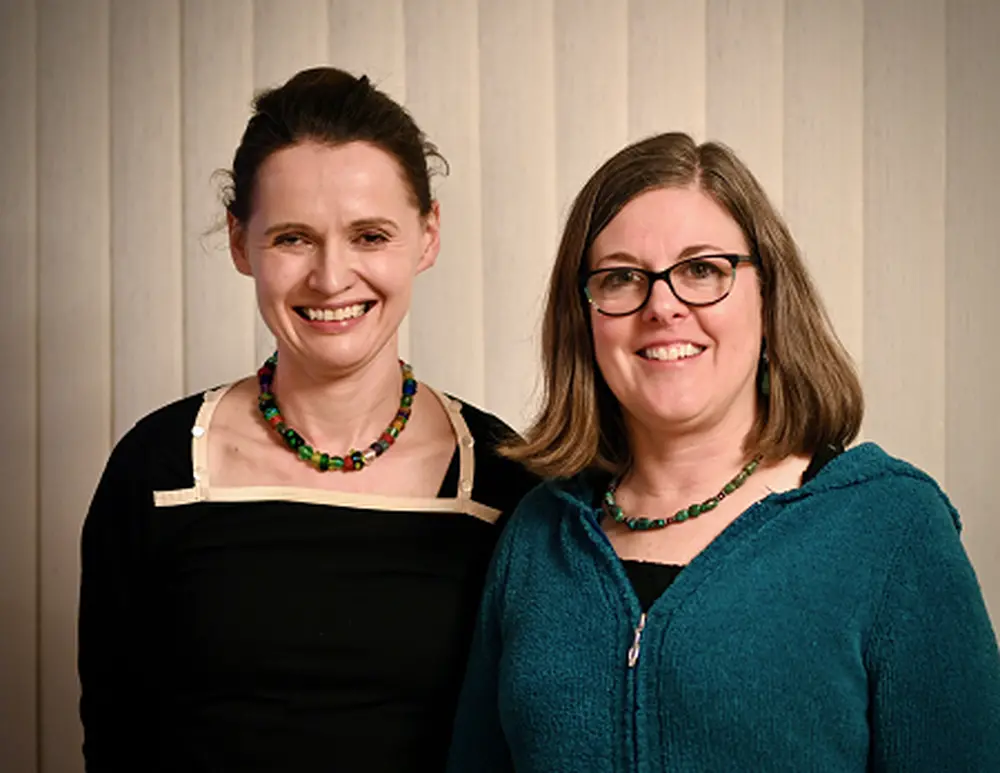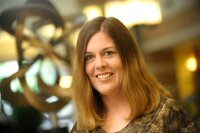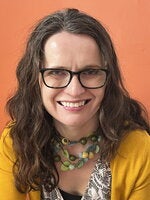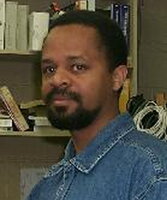
Associate Professor Catharine Fairbairn and Professor Kara Federmeier have been awarded a 5-year R01 grant from the National Institute of Alcohol Abuse and Alcoholism. They will use EEG and ERP hyperscanning to look at how alcohol might impact brain processes in social contexts. This means they will be able to simultaneously record brain activity in two participants at once. They will look at how brains respond to one another and interact, both when individuals are drunk and when they’re sober. Through doing this, they hope to reveal brain processes that might explain why some people go on to develop problems with alcohol.
This interview has been edited for clarity and length.
Could you provide some background on the motivation behind this project? What inspired you to take it on?
In the past, when scientists have been interested in how alcohol impacts the brain, they’ve studied people by themselves. But in real life, intoxicated brains spend time in company with other brains. No study has looked at how alcohol might impact the brain in the context of social interaction.
How did collaborative efforts contribute to receiving this grant?
This is a project neither of us could do alone. It was a joint effort all the way from equipment setup to the writing of papers. Kara is the expert in ERP, and Catharine in addiction science, and as of 2015 we each knew next-to-nothing about the other's area of expertise. We now know a lot more, although Catharine still wants to be the "head" when piloting EEG tasks vs applying the electrodes!
Combining our two areas ended up involving quite a number of challenges—it turns out if you give folks a few drinks and then put them in a dark room together, they tend to fall asleep. It takes a lot of conversation and knowledge-exchange within the leadership team to get things off the ground. We’re lucky to be in a department that supports this kind of joint effort. It also helps that we're friends.
On a personal note, what does this achievement mean to you? How does it contribute to your own growth and aspirations?
One of the greatest joys of the academic career path is the opportunity it offers to learn and grow beyond your comfort zone. It’s your choice if you want to branch out into a new area. This project brought to each of us entirely new knowledge. It required us to adopt the role of the student, learning something entirely new. This sort of project keeps you humble. It also keeps things fun.
Are there individuals, teams, mentors, or supporters you'd like to acknowledge for their contributions to this project's success?
This work wouldn’t have happened if it weren’t for some pretty extraordinary students, staff and colleagues. Dahyeon (Dani) Kang helped us grow this line of work from the very outset, applying her programming and troubleshooting skills all the way from EEG lab setup to the most recent manuscript submission. In more recent years we've been lucky to welcome the wonderful Jiaxu Han, who helped bridge this work into the realm of continuous EEG recording and neural alignment analyses. Firmino Pinto has been our wizard all along, cobbling together equipment solutions back when we couldn't afford a proper hyperscanning system. We have also benefited from the involvement of a range of staff and students over the years, including James Morris, Anna Garrison, Hieu Nguyen, Zoe Lee, Emily Mech, and more recently Alexa Boland and Jaime Shields. We couldn’t have done it without you. Finally, we want to send a thanks to Wendy Heller, who initially encouraged the collaboration. We appreciate your support then and now.


